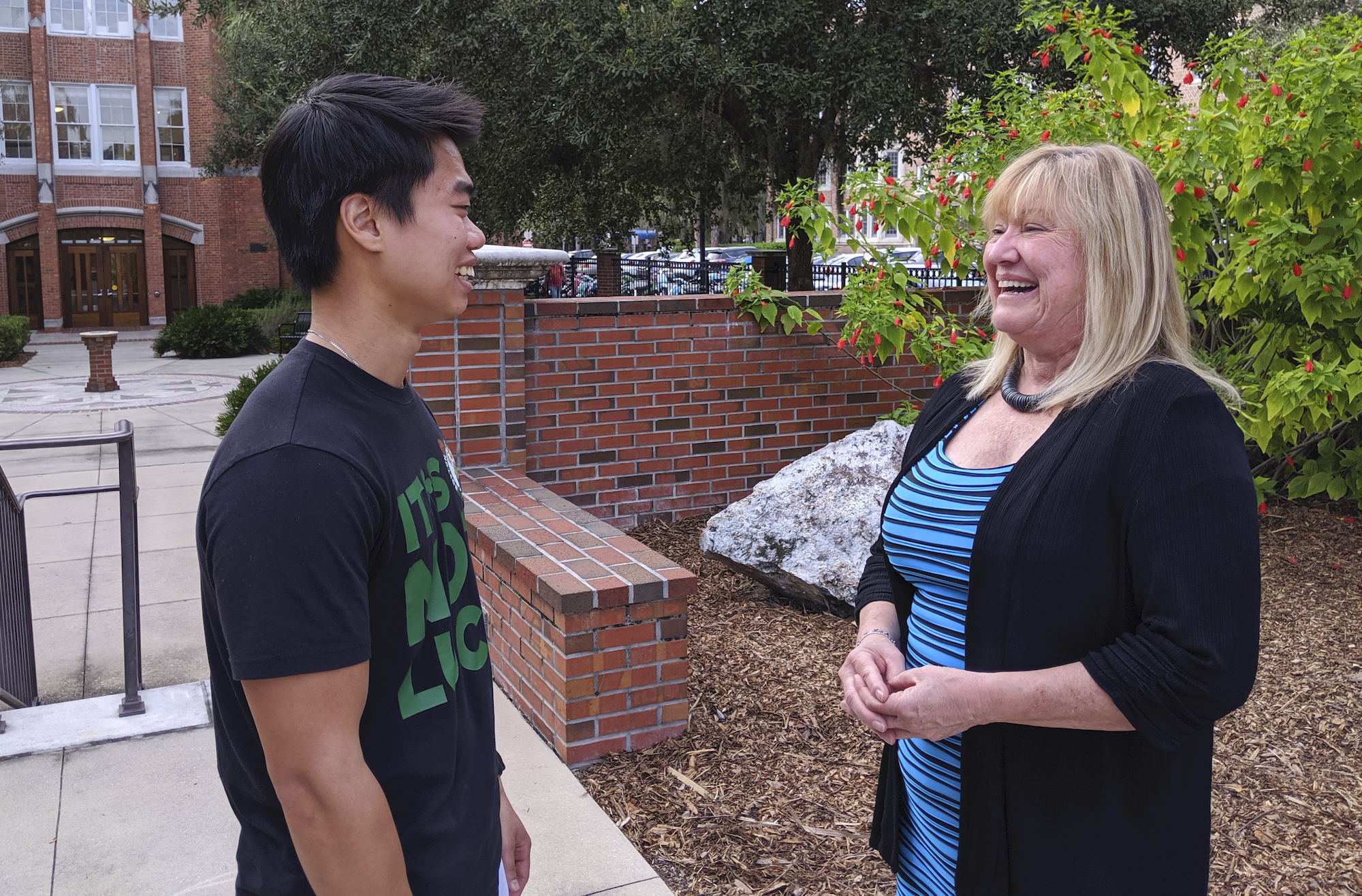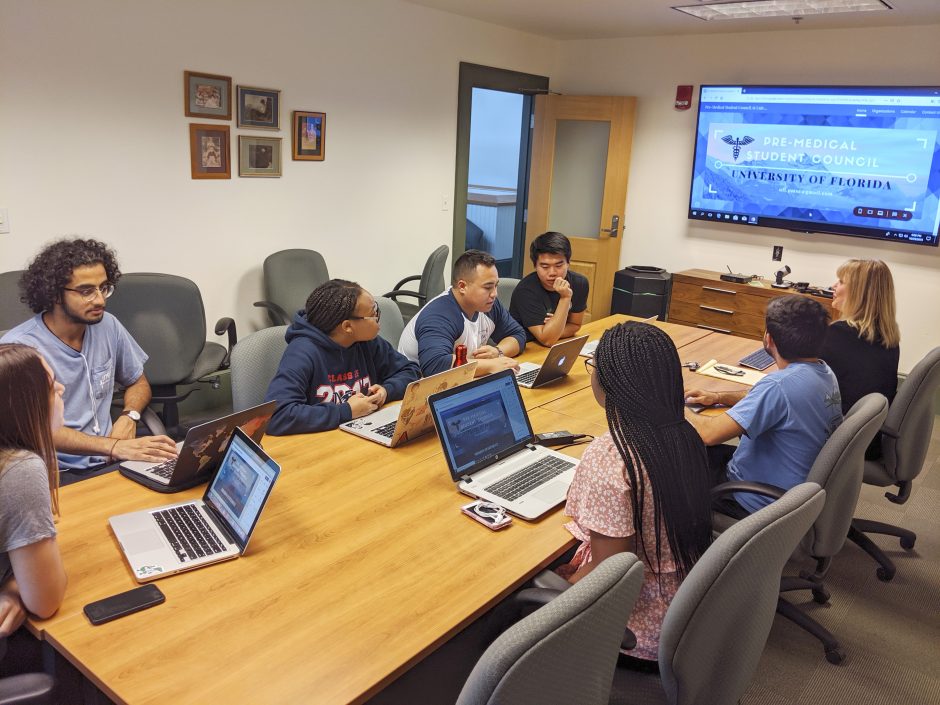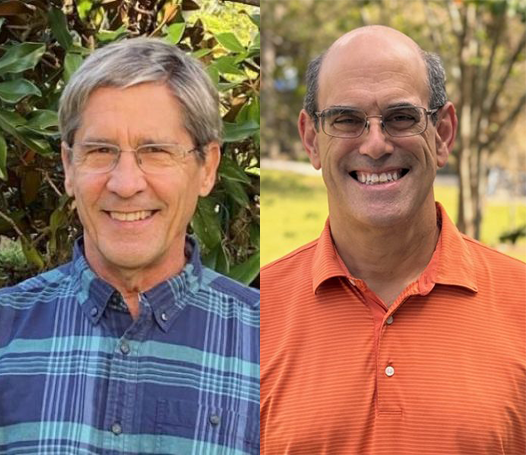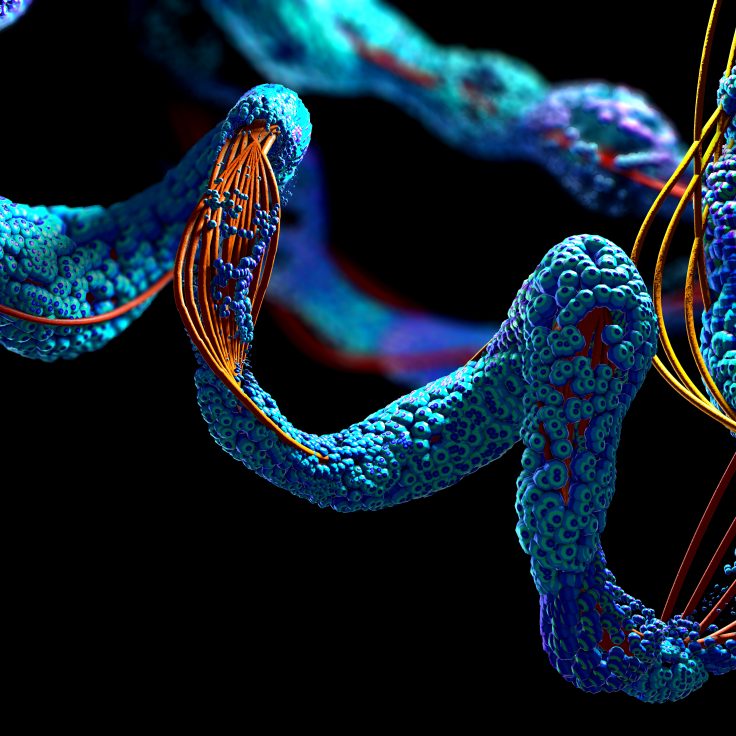
How Can We Change Healthcare? Build Better Doctors
Evening of Excellence honoree Laura Guyer established an essential program
“The healthcare professions need what we teach here in liberal arts and sciences,” LAURA GUYER said. She should know.
A professor in the Center for Gender, Sexualities and Women’s Studies Research, Guyer has experience working in the private healthcare sector, public health and academic settings like here at UF.
“Every 10 years my phone has rung with an offer to do something a little different,” she said.
One of these rings brought Guyer back to UF in 2011 after initially working within the university’s Food Science and Human Nutrition Department from 1989 to 1999. Between her two stints at UF, Guyer was employed at a regional health education center and served in healthcare leadership roles throughout the state.
What drew Guyer back to campus? The chance to lead the development of the new Health Disparities in Society (HDS) minor and to help the next generation of healthcare professionals provide better care to everyone, regardless of ethnicity, gender, economic class or education level. Since the program’s launch in 2011, it has become one of the fastest growing and most popular programs in the College of Liberal Arts and Sciences by focusing on this crucial need. Guyer was recognized earlier this year at the college’s annual Evening of Excellence for her role as a faculty member and leader of this minor.
Inequality in healthcare is not a new issue. In 1985, the United States Secretary of Health and Human Services convened a Task Force on Black and Minority Health to determine why minorities in particular experienced higher rates of disability, disease and death than white patients.

Although there has been increased awareness on health disparities in recent years, this issue still plagues the field. Guyer noted that you can see this at play in a startling statistic — according to a 2016 Johns Hopkins study, medical errors are the third-leading cause of death in the U.S. behind heart disease and cancer.
While it can be hard to disentangle what causes a medical error, Guyer said that many of these can be traced back to the failure to communicate with a patient, whether due to implicit biases or simply lacking the skill to do so effectively.
“If your physician isn’t communicating clearly from a cultural or language perspective, or perhaps you are a person who doesn’t read exceptionally well, how are you going to follow your doctors’ instructions at home?” Guyer said.
“Healthcare is changing,” she explained, noting that the United States is switching from a fee-based model to one that focuses on quality of care first. This switch demands the expertise and skills found in the social and behavioral sciences — skills that are critical to helping healthcare professionals better understand people and their differences.
For the students enrolled in the HDS minor, these skills offer a leg up when it comes to getting into medical school. They have a deeper understanding of the differences between patients and what it takes to provide exceptional care, Guyer said.
The minor also attracts a diverse student body. Each semester, up to 50–60 percent of its students speak another language, with Guyer cataloging up to 83 different languages spoken by the minor’s undergraduates over the course of the program’s existence.
Guyer feels strongly about undergraduates receiving this kind of exposure to other cultures and lifestyles before they go to medical school. The HDS minor, she believes, lays the foundation for a more inclusive, sensitive and overall better healthcare system.
“The reason I’m so passionate about undergraduate students is because of the place in life, the developmental milestones that are being reached during the undergraduate years,” she said. “You become an independent person and identify where you fit in the world.”
The students not only have opportunities in the classroom, but they’re also immersed in the volunteer community. “I get the students out of the classroom because they need to see what this information means and how it’s valuable,” she said.
The minor receives support from a variety of community organizations dedicated to helping the next generation of healthcare professionals provide the care the public needs.
“Every semester, 37 safety net clinics, nonprofit health organizations, city government and state agencies mentor 55-60 undergraduate students,” Guyer said. “I greatly value those who give so generously to our students. The minor could not be successful without their generous input and support.”
Guyer was recognized at this year’s Evening of Excellence for her pivotal role in developing and guiding this minor. Introducing Guyer to the stage, BONNIE MORADI, Director of the Center for Gender, Sexualities, and Women’s Studies Research, explained just how impressive this achievement is.
“Not only is HDS the fastest-growing minor in the college,” she said, “but it also is the only undergraduate academic program nationwide that introduces pre-professional students to the issues of health disparities, social determinants of health, cultural competence, health literacy and advocacy.”
Despite the praise she’s received since her return to UF, Guyer still has a hard time believing that she received this honor. “I’m still so stunned by the award,” she said. “There is no greater honor than to be recognized by your peers.”
Guyer, though, remains committed to her ultimate goal of improving healthcare for everyone. “I’m trying to build a better doctor, a better nurse,” she said. With this minor in place, she’s well on her way.


